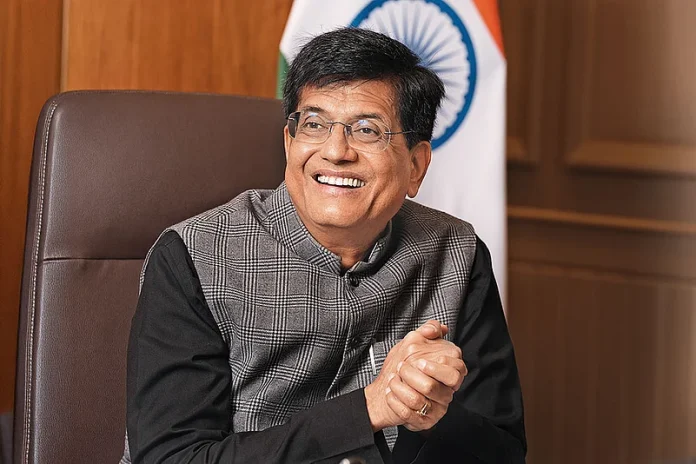In a recent address at the Startup Mahakumbh in New Delhi, Commerce and Industry Minister Piyush Goyal called upon Indian startups to pivot from an overemphasis on food and grocery delivery services to more advanced technological sectors such as semiconductors, machine learning, robotics, and artificial intelligence (AI). He expressed concern that the current trajectory of many startups is limiting India’s potential in the global tech arena.
In This Article:
Goyal questioned the direction of India’s entrepreneurial ventures, stating, “Are we going to be happy being delivery boys and girls? Is that the destiny of India… this is not a startup; this is entrepreneurship.” He highlighted the contrast between Indian startups focusing on rapid delivery services and Chinese counterparts advancing in areas like electric mobility, battery technology, and robotics.
The minister underscored the need for startups to contribute to preparing the nation for future technological challenges. He posed a rhetorical question, “Do we have to make ice cream or chips?” emphasizing the need to move beyond basic services to high-tech manufacturing and innovation.
Goyal also addressed the importance of increasing domestic capital investments to reduce reliance on foreign funding. He asserted that a strong foundation of indigenous investment is crucial for ensuring long-term economic resilience and fostering a self-reliant startup ecosystem.
Industry Leaders Respond
Goyal’s remarks have elicited responses from prominent figures in the startup community. Aadit Palicha, co-founder of Zepto, defended the role of consumer internet startups. He noted that Zepto has created approximately 150,000 jobs and contributes significantly to the economy. Palicha emphasized that building companies addressing real problems at scale is a form of technological advancement and called for government support in nurturing local tech champions.
Mohandas Pai, chairman of Aarin Capital and former Infosys executive, also responded critically to Goyal’s statements. He questioned the government’s role in supporting deep-tech startups and suggested that policy shortcomings have hindered their growth. Pai highlighted the need for a conducive environment that fosters innovation and technological advancement.
The Current Startup Landscape
India’s startup ecosystem has witnessed remarkable growth, becoming the third-largest globally with over 157,000 recognized startups and a growing number of unicorns. However, Goyal’s critique points to a perceived imbalance, with a significant focus on consumer convenience apps rather than deep-tech innovations. In contrast, Chinese startups have made substantial strides in sectors like electric vehicles, semiconductors, and AI, setting a benchmark for technological advancement.
Challenges and Opportunities
The Indian startup ecosystem faces several challenges, including regulatory hurdles and limited access to domestic capital. Despite these obstacles, opportunities abound in deep-tech areas. Goyal’s call to action emphasizes the need for startups to explore sectors that can drive sustainable economic growth and technological advancement. Leveraging India’s strengths in information technology and software development could pave the way for progress in complex technologies. For instance, focusing on developing a robust semiconductor industry is crucial for both domestic electronics manufacturing and global competitiveness. Additionally, investing in AI and renewable energy could position India as a leader in these emerging fields.
Government’s Role and Initiatives
The government has initiated several programs to support startups, including the Startup India initiative, aimed at fostering innovation and providing a conducive environment for entrepreneurial ventures. However, industry leaders argue that more needs to be done to support deep-tech innovation. Goyal assured that the government is committed to assisting startups facing challenges and encouraged entrepreneurs to persevere in their endeavors.
Time to up the game
The debate sparked by Piyush Goyal’s comments underscores the complex dynamics within India’s startup ecosystem. While consumer tech startups have significantly contributed to job creation and economic growth, there is a pressing need to balance this with advancements in deep-tech sectors. Encouraging dialogue and collaboration between the government, industry leaders, and startups can help create a more balanced ecosystem. As India aspires to become a global leader in technology, fostering innovation in high-tech sectors will be pivotal in achieving this goal.
By – Sonali




